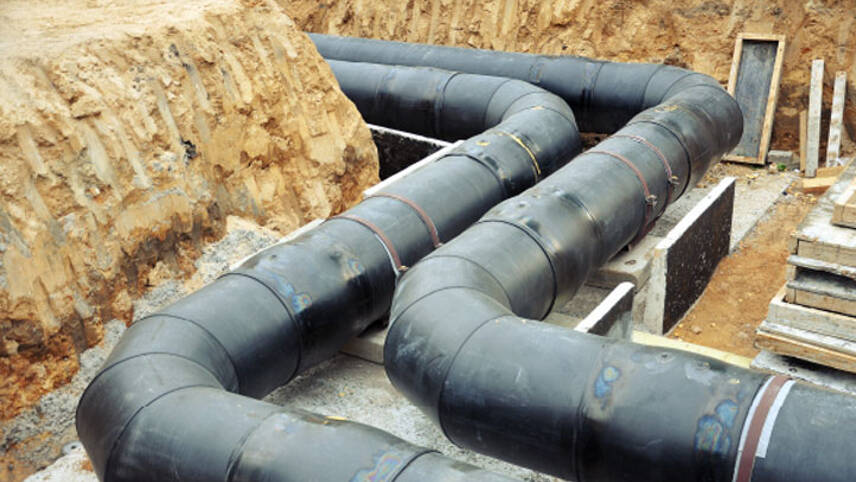Register for free and continue reading
Join our growing army of changemakers and get unlimited access to our premium content

Image: Gemserv. Pictured: Heat network infrastructure.
Backed by the Government’s Green Heat Network Fund, these projects aim to reduce carbon emissions, cut energy bills and support Britain’s pathway to net-zero emissions by 2050.
One of the four projects, Bolton’s district heating network, has received £11m in Government funding.
The project will use waste heat from Bolton’s sewer to heat nearly 2,000 homes and businesses, encompassing the University of Bolton and the Town Council.
By extracting energy from sewage and hot water waste to power a heat pump, the project aims to decrease dependence on conventional energy sources and maintain cost-effective energy bills for residents and businesses.
Energy Efficiency and Green Finance Minister Lord Callanan said:“These innovative projects will help drive down energy costs while also demonstrating why the UK has led the way in cutting carbon emissions.
“They show how energy sources can be found in the most unexpected places – as more homes and businesses will benefit from cleaner heating and lower energy bills.”
Other projects to receive a share of the £80.6m from the Green Heat Network Fund include:
- Exeter Energy Network: Awarded £42.5m, this project will construct a heat network using air-source heat pumps and the UK’s largest high-temperature water source heat pump, aiming for a 65-75% reduction in carbon emissions compared to traditional gas heating.
- Hull East District Heat Network: With a £22m investment, Hull’s district heat network will use excess heat from a nearby chemicals park, providing low-carbon heating to public sector buildings and industrial businesses.
- Greenwich Peninsula ESCO District Heating Network: London’s Greenwich Peninsula will receive £4.6m to connect more than 9,000 homes and 94,000 square meters of commercial space to low-carbon heating, powered by an air source heat pump.
Heat network efficiency scheme
In addition to the Green Heat Network Fund, the Government has allocated more than £8m through the Heat Network Efficiency Scheme to improve 34 heat network projects across England and Wales.
This scheme will enable network operators to replace outdated equipment, enhance reliability and improve overall heating performance.
Heat Trust’s managing director Stephen Knight said: “The steep rises in gas prices over the last few years has meant that inefficient heat networks can be very expensive for residents.
“The Scheme is therefore an important step in the right direction, and we welcome today’s announcement of funding. I would urge all those responsible for running existing heat networks to consider bidding for this funding in future rounds.”
Projects selected for funding to enhance heat networks include:
- Newport City Homes Housing Association Limited: Awarded £3.7m for upgrading the Dyffryn District Heating System by replacing pipework, benefiting more than 970 homes, a local school and businesses.
- Bristol Heat Networks Limited: Granted £746,582 for improvements to the Redcliffe Heat Network, benefiting 740 residents. The funding is designated for replacing pipework throughout the network.
- University of Plymouth: Allocated £243,280 to upgrade the heating system in the Portland Square area of its campus. The funding will enhance network efficiency, facilitating the replacement of fossil fuel-powered appliances with heat pumps and electric boilers.
Currently, heating in buildings contributes to 30% of the total emissions in the UK. The UK Government is aiming for 600,000 heat pumps to be installed in homes and businesses each year by 2028, up from 55,000 in 2021.
Related news: Hampshire to host UK’s largest water-source heating and cooling network


But politicians are not generally well informed on the details of technical and scientific matters. Quite understandably, and neither is the technical sector well informed upon the complexities of administrative matters.
A greater degree of cross pollination might be a good thing? But how to achieve it?
Not easy!
But the French have a go at it, might we not see the advantages of such an effort???